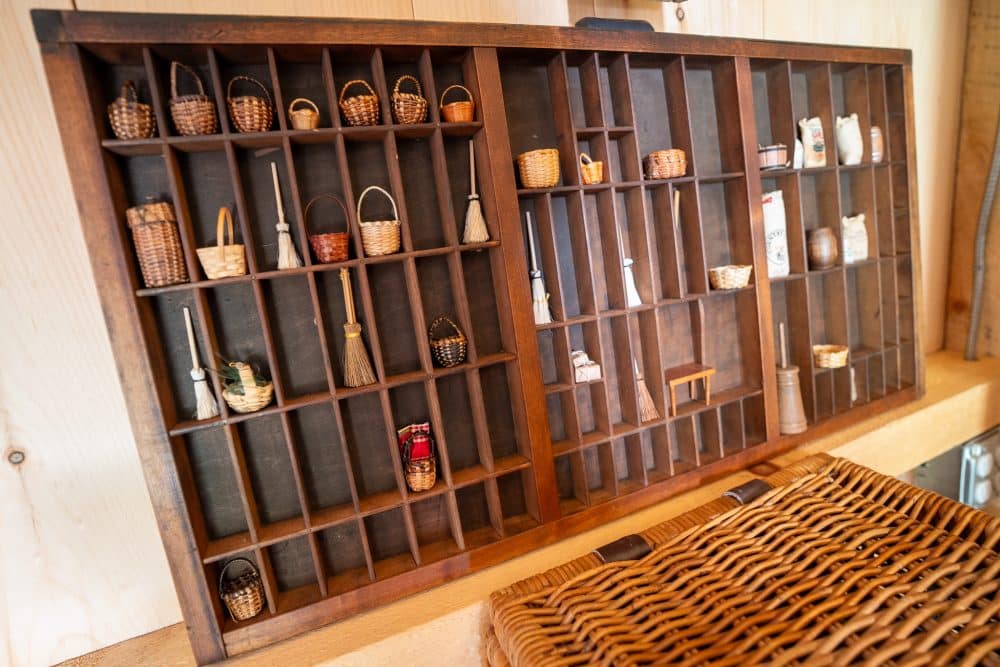
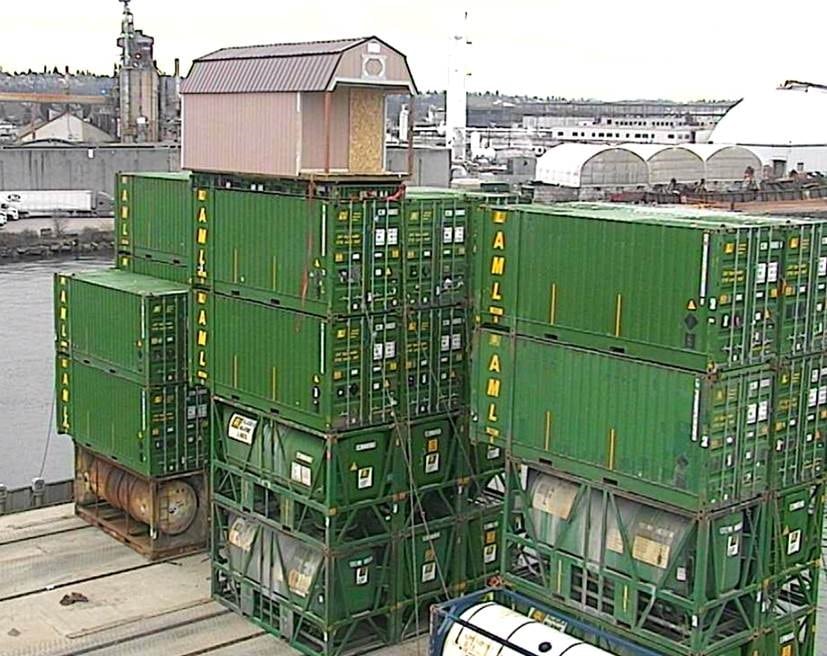
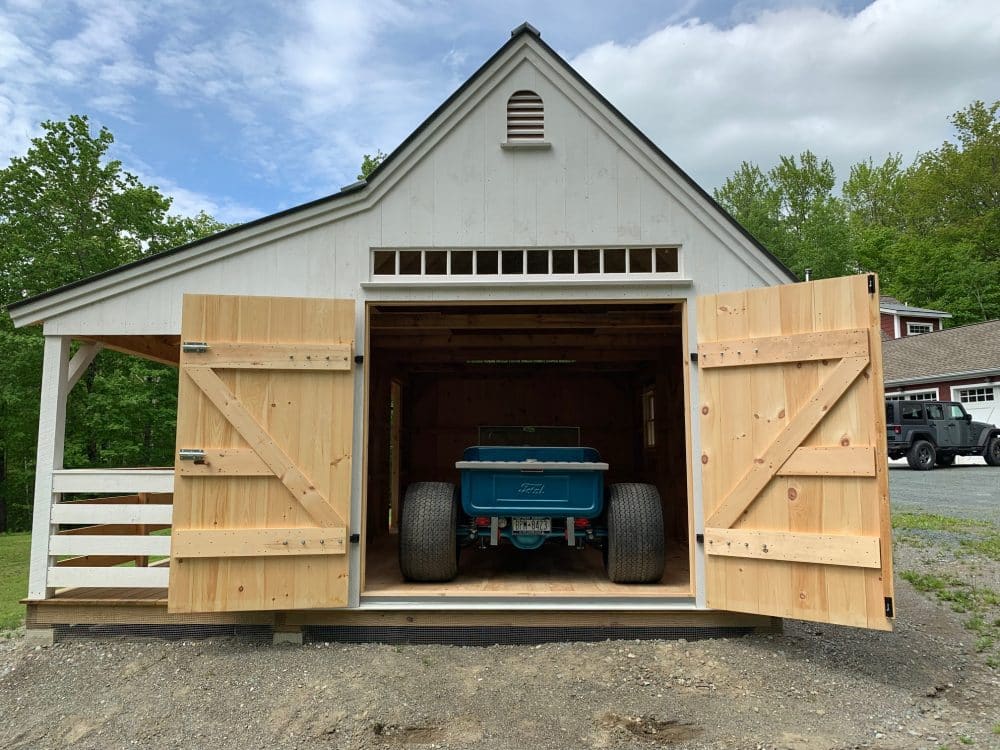
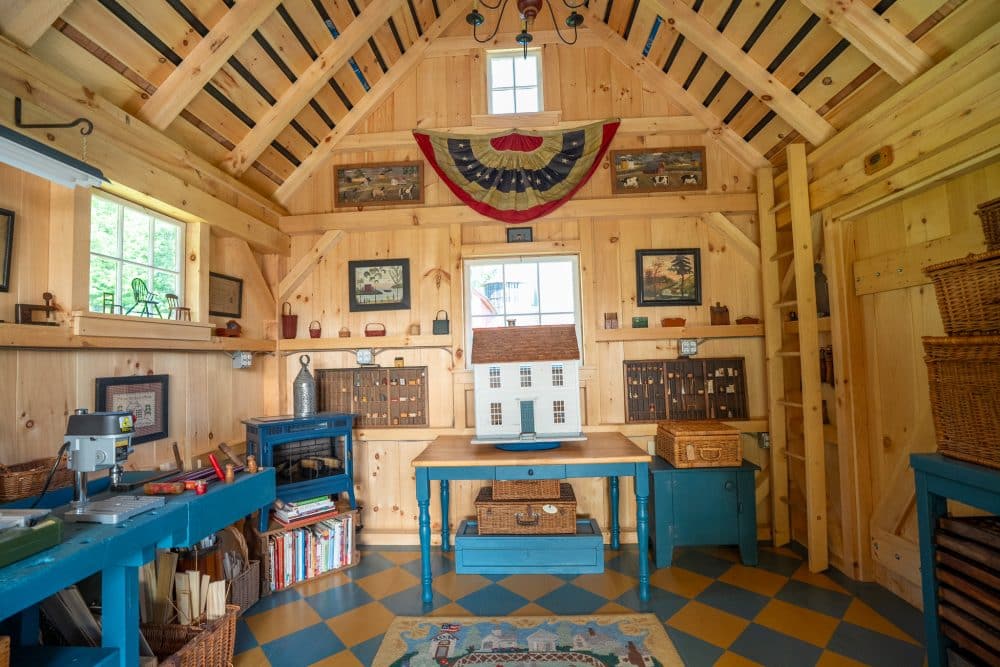
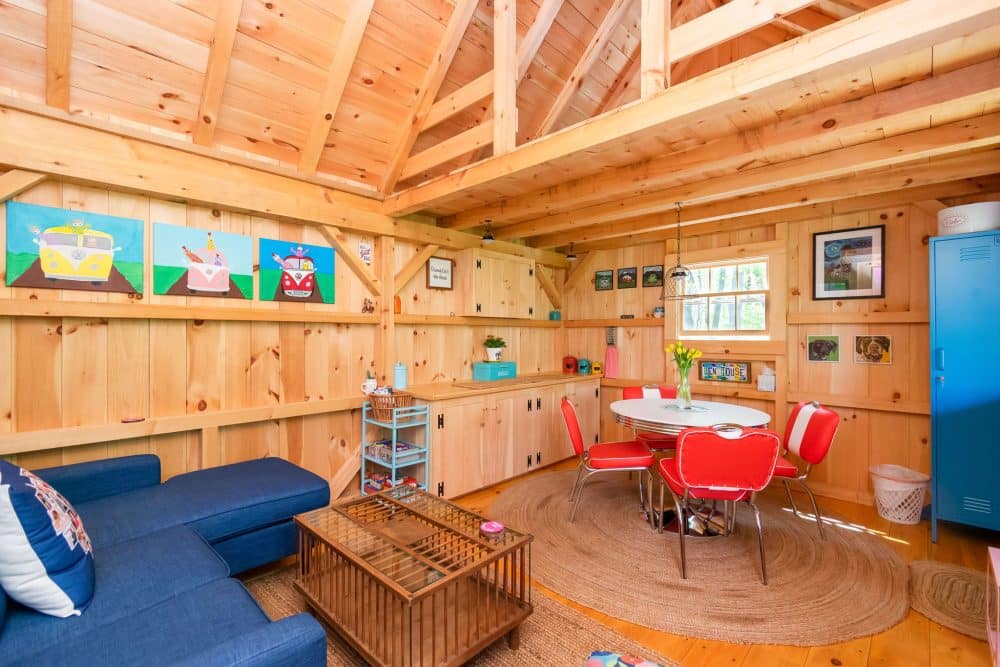
The shed builder business is rife with amusing stories, peculiar customization, and interesting interactions with customers.
Just because you have a garage does not guarantee a clutter-free life. Every shed builder understands and lives by this and knows a well-built prefab shed can be quite attractive and conducive for not only storage but also for home offices, hobby rooms, workshops, and even guest houses.
With the right options and features, a shed enhances a lifestyle and an outdoor space. Furthermore, while functional and sometimes boxy, sheds can be individually crafted with unique designs and materials.
Constructing, tailoring, and personalizing these outdoor storage structures on-site is bound to produce amusing stories, peculiar customization, and interesting interactions with customers.
What follows are real-world testaments from shed builders on some of their funniest, strangest, and most meaningful on-the-job experiences.
Dealing with Customers
John Motley with Old Hickory Sheds in Boise, Idaho, has been in the construction industry with his wife (who is also his partner) Pat for 25 years and been shed dealers 14 of them. Selling sheds is just one of his many responsibilities, and in terms of dealing with customers, he says he could write a book about that.
“Our motto for a very long time, some may find it kind of corny, has been, ‘We don’t sell sheds, we help people.’ Let me give you an enormous example,” he shares.
“(When) selling in a metro area, buyers are more often than not required to obtain a building permit and/or HOA (Homeowners Association) approval. I’m sad to say that over the years we have seen way too many shed buyers get into big time and very costly challenges. If we’re concerned about them being required to have a permit, we tell them straight up, ‘Do not buy a shed from anyone anywhere until you research the need for a permit.’ We offer them free stamped engineered plans to take to the building department to help them with the process.
“Some dealers’ motto is, ‘It’s Not My Problem.’ We have been invited to sell newer and bigger products but had to turn them down because there were no engineered plans available.”
Josiah Loye, COO of Post and Beam Barns by Country Carpenters in Hebron, Connecticut, cites one particularly amusing customer interaction with a customer located in a beautiful and wealthy area of the country.
The woman had purchased one of his shed models called a Country Cabin because it included a front porch and is typically used as a pool shed, a small studio, a hunting cabin, or even a vacation tiny home. This woman lived on a large and beautiful property, and Loye hired a local photographer to take pictures in this area on a particular day.
“She invited us to come out and take photos when we asked and said that we could let ourselves in and take whatever photos we wanted,” Loye says. “I relayed this to the photographer. When the day arrived, I got a call from the photographer about midway through the day. He told me that he was at the site but couldn’t get up to the building. I asked him why not, he said there was a fence around it. I asked him if he could go in. She had said that it was fine. He told me that he didn’t want to go in there. I asked him to take pictures the best that he could from outside the fence and got off the phone.
“I thought the situation seemed odd and I wondered why he wouldn’t go in the fence. The homeowner had told me it would be unlocked. A few days later I got the photos and realized the predicament. The beautiful shed we had sold her was being used to house her flock of sheep. The best that I could figure, the photographer didn’t want to mess up his shoes by walking in there. Either that, or he had an irrational fear of sheep.”
Sometimes the location of a shed has the potential to produce an off-beat customer experience. Loye had a customer who lives on Grindstone Island in New York. The only way to reach the island is by an old army barge.
“The first building he ordered from us was a mid-size garden shed,” he shares. “To get the building kit onto the island, it had to be loaded onto the barge in multiple trips. Once the pieces were on the island, they had to be loaded onto small shed mules and pushed through the wooded island on small deer paths to reach the final build location on the customer’s property.”
Sometimes customers simply want privacy. Loye had a customer whose “pièce de resistance” on his property was one of Loye’s large barn kits covered in glass. Everything except the frame of the barn is glass and this is his primary residence.
“He lives on an island and when friends and family come to visit, they stay on the property since there are no hotels on the island,” he says. “His first building with us was a large garden shed that he converted into a small sleeping space that he now lovingly refers to as the privacy shed. For those guests who visit and don’t want to be visible at all times in the glass barn, there’s the privacy shed.”
Shed-buying customers are not afraid to personalize their sheds, sometimes with dramatic effects. Loye has experienced customers buying his small buildings and turning them into what is commonly known as a She-Shed. This is a shed typically used by the woman of the house as a backyard escape, small studio, or workshop.
“What I had not heard of before speaking with a recent customer was a Hen House,” he shares. “This customer turned her large garden shed with attached porch and mini loft into a backyard escape for herself and her girlfriends. The inside was uniquely decorated with 1950s and ’60s style décor and many references to chickens including a vanity plate that reads ‘Hen House.’ If there was any confusion about this structure being just for the ‘girls’, there is a sign outside the door that reads, ‘No Roosters Allowed.’”
Meaningful Experiences
Sometimes the shed-buying experience can turn toward the sentimental.
Josiah Stoltzfus, marketing director at Montana Shed Center, Great Falls Montana, recounts one particularly meaningful experience.
”A fun and meaningful experience for our company in the past few months was a shed raffle we did for a gingerbread-themed playhouse,” he says. “We had a display at the Christmas stroll here in Great Falls and sold tickets for the raffle there. All the money for the raffle tickets was donated to the local food bank. We were able to raise about $1,100 thanks to our local community.”
Loye recounts one of his shed experiences that was downright heartfelt. It involved the creation of a memorial shed.
“We had a customer reach out to us a number of years ago with a very special request,” he says. “He and his son had been rebuilding a classic Ford together and shortly after finishing his son unexpectedly passed away. He wanted a special place where he could keep that vehicle safe and stored as a memorial. He built one of our sheds and stored the car inside and now is able to cherish the memory of his son and that special experience they had together.”
Competition Frenemies
Are there any anecdotes to describe the competition amongst shed makers? Does the folksy nature of sheds equate to folksy relationships among them? Or does the old adage let the best shed (seller) win?
Well, there are several shed competitions; both at the industry level all the way down to the high school level. Most notably, there is the Cuprinol Shed of the Year, and even various shed photo contests.
A 2016 television series titled “He Shed She Shed” put a new spin on the backyard shed competition.
Yes, the shed industry is considered to be quite competitive with a large number of small and large players operating in the market.
Motley explains, “Well, it’s difficult to express myself without smaller competitors feeling dismissed, but I’ll try. Selling sheds is only one of our many responsibilities.
“The understanding that most have in the shed industry is that they are most of all what they do … build, sell, or deliver sheds. Most don’t see themselves as a businessperson first of all. I’ve always wanted to cooperate with competitors and not just compete, but they never seem to recognize the value of cooperation.
“Here’s an example. We get contacted all the time by shed shoppers out of our area and have over the years attempted to share the shopper’s info with their local dealer in exchange for a small commission … never works. Another one of our mottos has always been, ‘Some Money is Better Than No Money.’”


